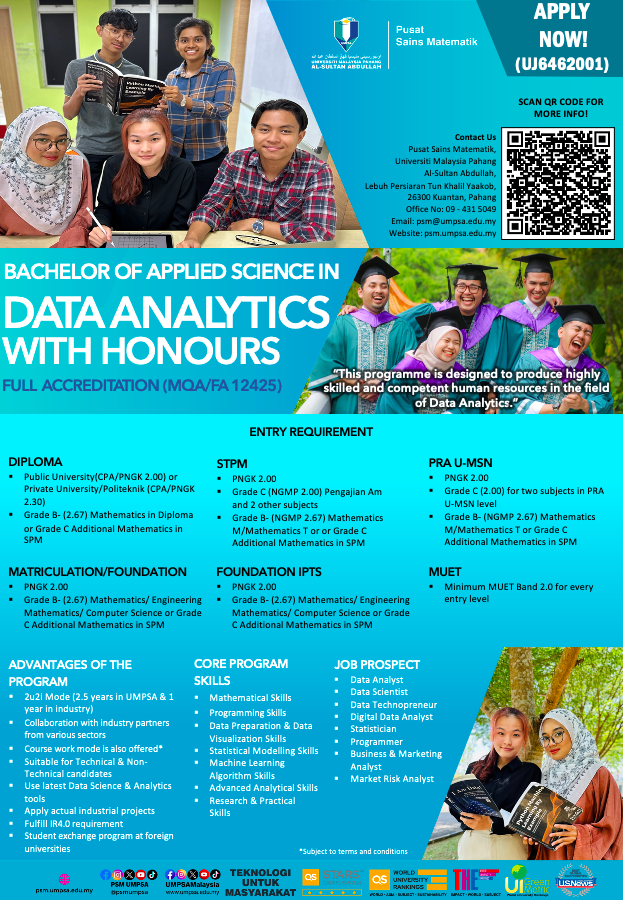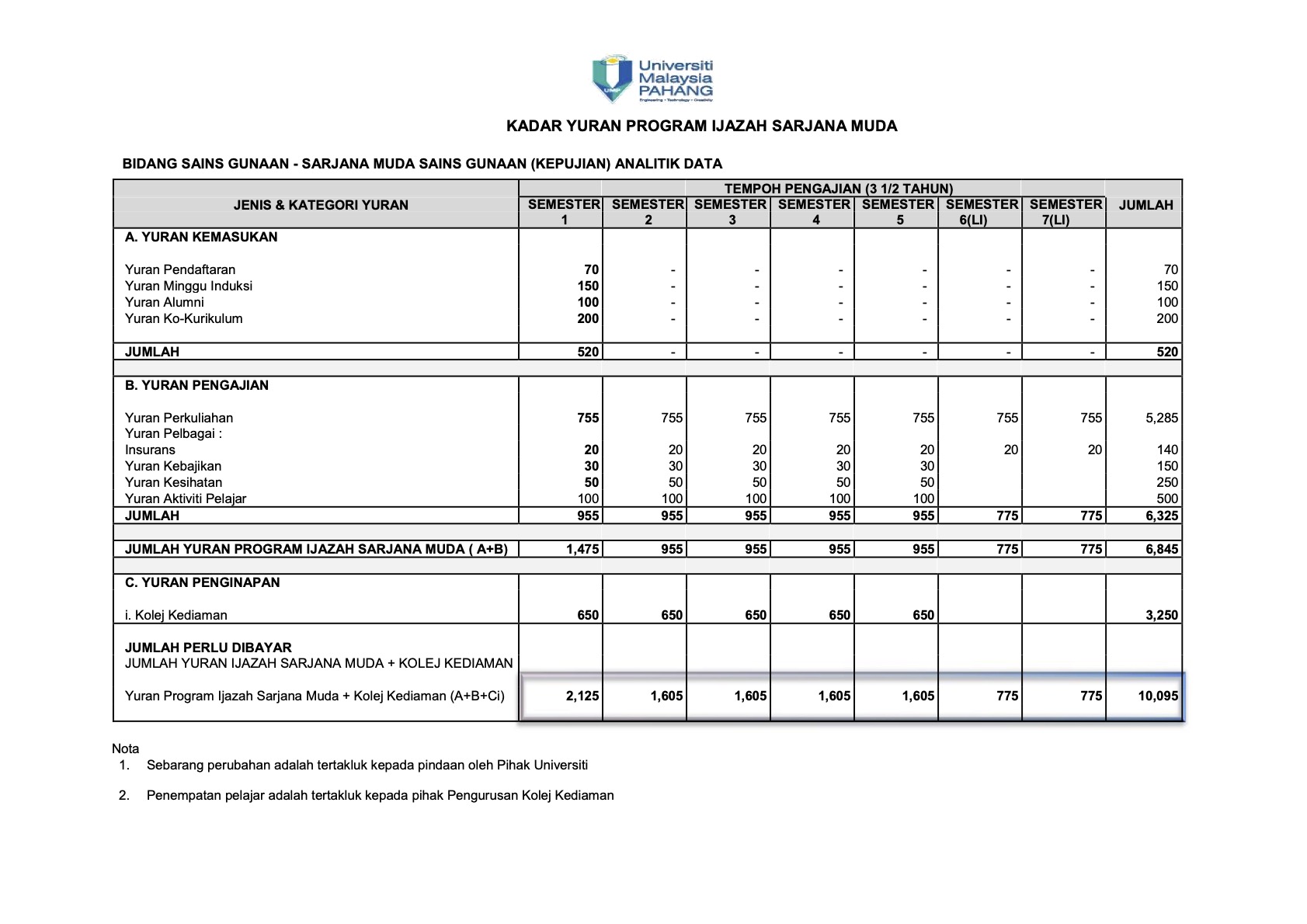PROGRAMME PROFILE
The Bachelor of Applied Science in Data Analytics with Honours (MQA/FA 12425) is developed in line with UMP's vision, mission and educational goals to be a distinguished Technological University. The three and half year programme is designed to produce highly skilled and competent graduates in the field of Data Science who are capable to gain insights of the data and make effective decisions using Data Science and Analytics skills. Data Science is a new exponentially growing field that consists of a set of tools and techniques, and requires an integrated skill set from statistics, mathematics, computer science and the use of current technology in computer software or programming language. The Data Science elements are part of the main pillars of the Fourth Industrial Revolution (IR 4.0). The Industrial Revolution gives birth to new emerging technologies which includes automation, digitalization and artificial intelligence that bring forward new challenges in data science with the discovery of information from large volumes of data.
This Data Analytics programme are offered in two modes; Coursework and Industry (2u2i) modes. The curriculum comprises of 120 total credit hours’ industry-relevant courses which includes University Courses, Faculty Courses, Core Programme Courses, Elective Courses, Data Science Projects, and Industrial Training. For Coursework Mode, the students will undergo Industrial Training in Semester 7 after they have completed all the courses from Semester 1 to 6. Meanwhile, for Industry Mode (2u2i), the students will undergo Work Based Learning (WBL) through Block Release structure in Semester 6 and 7 after they have completed all the courses from Semesters 1 to 5.
Students will learn the architecture of Data Science and Analytics system through eight core areas of competencies including;
- Mathematical Skills
- Programming Skills
- Data Preparation and Data Visualization Skills
- Statistical Modelling Skills
- Machine learning Algorithms Skills
- Advanced Analytical Skills
- Managerial Skills
- Research and Practical Skills
Students will be equipped with an in-depth knowledge of Data Science and Analytics to become an expert analyst who will use the latest data management and analytics tools such as R, Python, Tableau, RapidMiner, and Knime. They will learn how to apply this expertise in the real world through final year project and internship program in any related industry in order to prepare for an exciting career ahead. Data Science and Analytics knowledge and tools are vital for the sustainability of science and technology advancement.
For Industry mode (2u2i), the Centre for Mathematical Sciences (PSM), Universiti Malaysia Pahang (UMP) has approached various industries which has potential to be appointed as the 2u2i Strategic Industry Partner. The 2u2i Strategic Industry Partner will support and accept the students of Bachelor of Applied Science in Data Analytics with Honours - 2u2i mode to experience Work Based Learning (WBL) at their company.
- Abyres Enterprise Technologies Sdn Bhd
- Suruhanjaya Syarikat Malaysia (SSM)
- Cardas Research & Consulting Sdn Bhd (CRCG)
- Cybersecurity Malaysia
- Talent Corporation Malaysia Berhad
- Telekom Malaysia Berhad
- Najeehah International Sdn Bhd
- Ever AI Holdings Sdn Bhd
- Myspatial Sdn Bhd
- TT Electronics
- I Net Spatial Sdn Bhd
- UMPSA Advanced Education Sdn Bhd
- Involve Asia Technologies Sdn Bhd
- Nippon Sushi
- Prasarana Malaysia Berhad
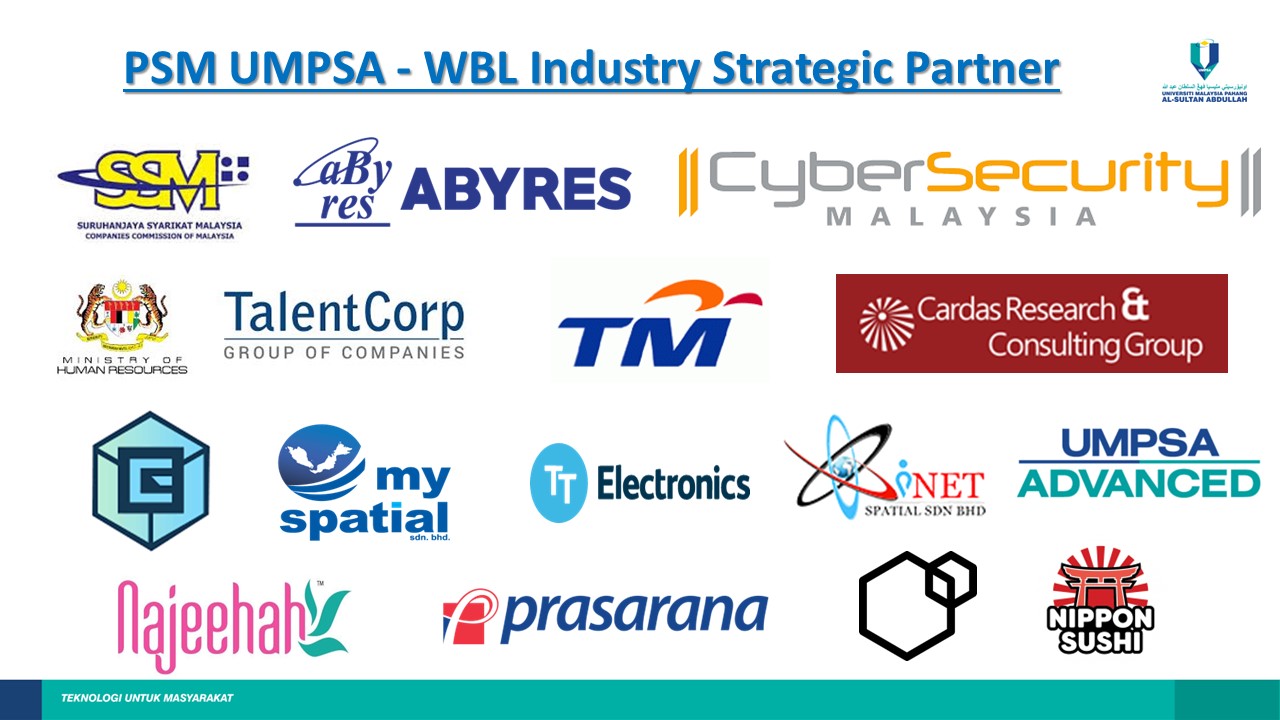
- Data Analyst (Penganalisa Data)
- Digital Data Analyst (Penganalisa Data Digital)
- Data Scientist (Saintis Data)
- Statistician (Ahli Statistik/Perangkawan)
- Business and Marketing Analyst (Penganalisa Perniagaan dan Pemasaran)
- Data Technopreneur (Usahawan Data)
- Programmer (Pengaturcara Komputer)
- Market Risk Analyst (Eksekutif Analisis Risiko Pasaran)
Data analyst plays an important role in deriving value and seeking patterns from data to assist organisations in the development of their predictive capabilities. A data analyst collects and stores data on sales numbers, market research, logistics, linguistics, or other behaviors. They bring technical expertise to ensure the quality and accuracy of that data, then process, design and present it in ways to help people, businesses, and organizations make better decisions.
A digital data analyst will collect, analyze and interpret data through market research, logistics, or other behaviors. This position requires technical expertise to ensure the quality and accuracy of that data, then process, design and present it in ways to help the department make sound decisions.
A statistician gathers numerical data and then displays it, helping companies to make sense of quantitative data and to spot trends and make predictions.
DIPLOMA
- Public University: CPA/PNGK 2.00 OR Private University/Politeknik: CPA/PNGK 2.30
- Grade B- (2.67) Mathematics in Diploma OR Grade C Additional Mathematics in SPM.
MATRICULATION/FOUNDATION
- PNGK 2.00
- Grade B- (2.67) Mathematics/Computer Science OR Grade C Additional Mathematics in SPM.
STPM
- PNGK 2.00
- Grade C (NGMP 2.00) Pengajian Am AND two (2) other subjects.
- Grade B- (NGMP 2.67) Mathematics M/Mathematics T OR Grade C Additional Mathematics in SPM.
FOUNDATION IPTS
- PNGK 2.00
- Grade B- (2.67) Mathematics/Engineering Mathematics/Computer Science or Grade C Additional Mathematics in SPM.
PRA U-MSN
- PNGK 2.00
- Grade C (2.00) for two subjects in PRA U - MSN level.
- Grade B- (NGMP 2.67) Mathematics M/Mathematics T OR Grade C Additional Mathematics in SPM.
MUET
Minimum MUET Band 2 for every entry level.PEO & PLO MAPPING
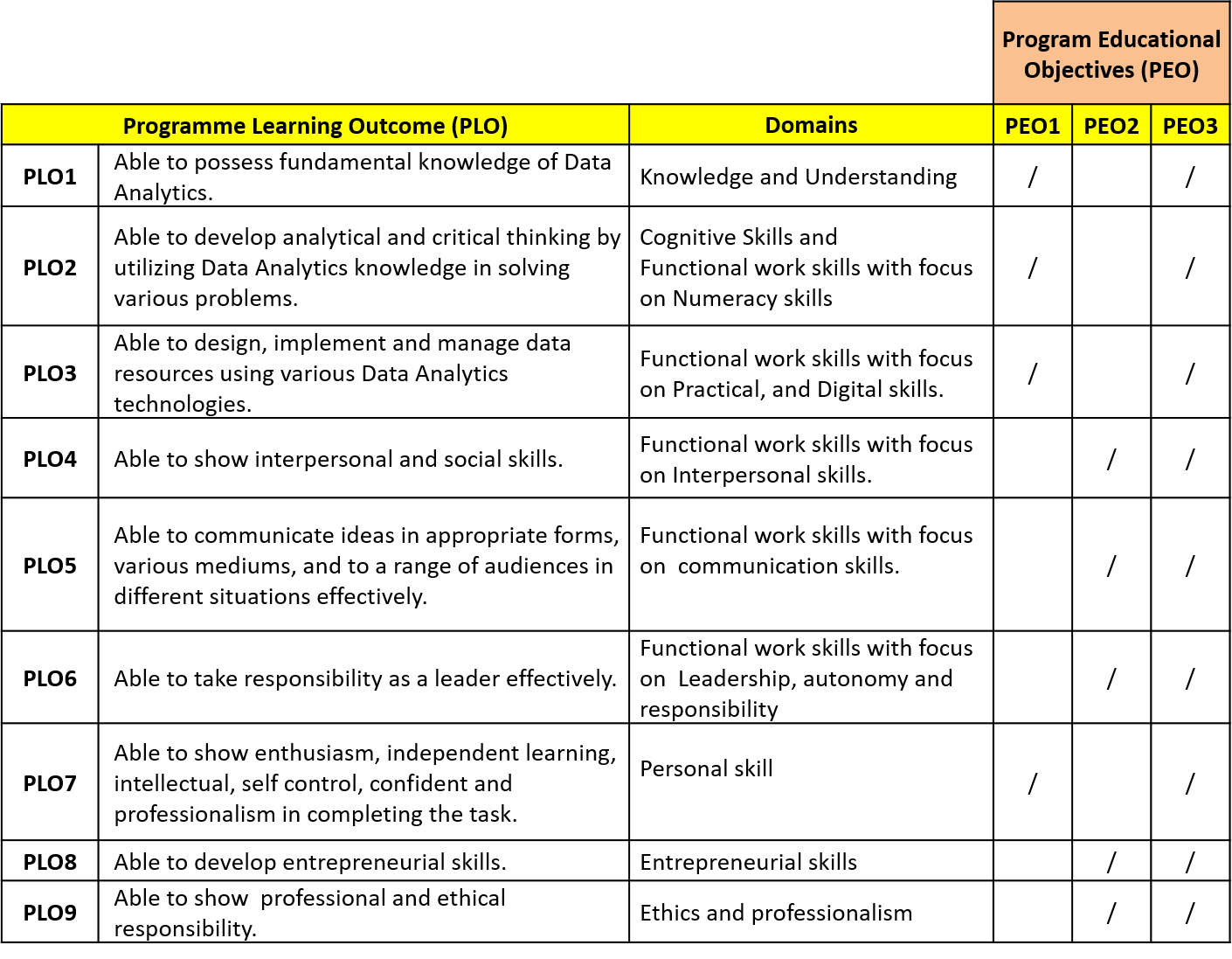
Curriculum Structures
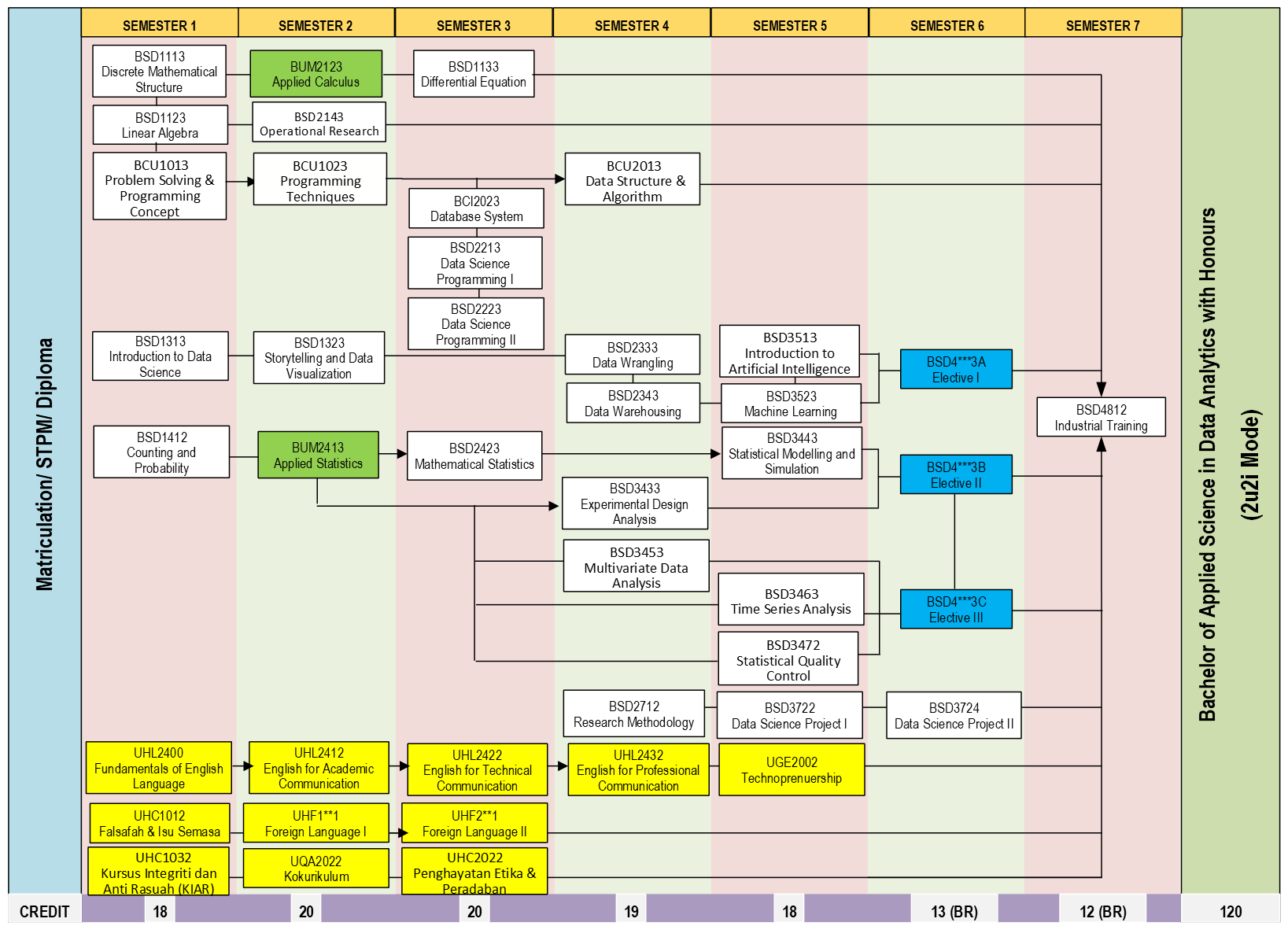
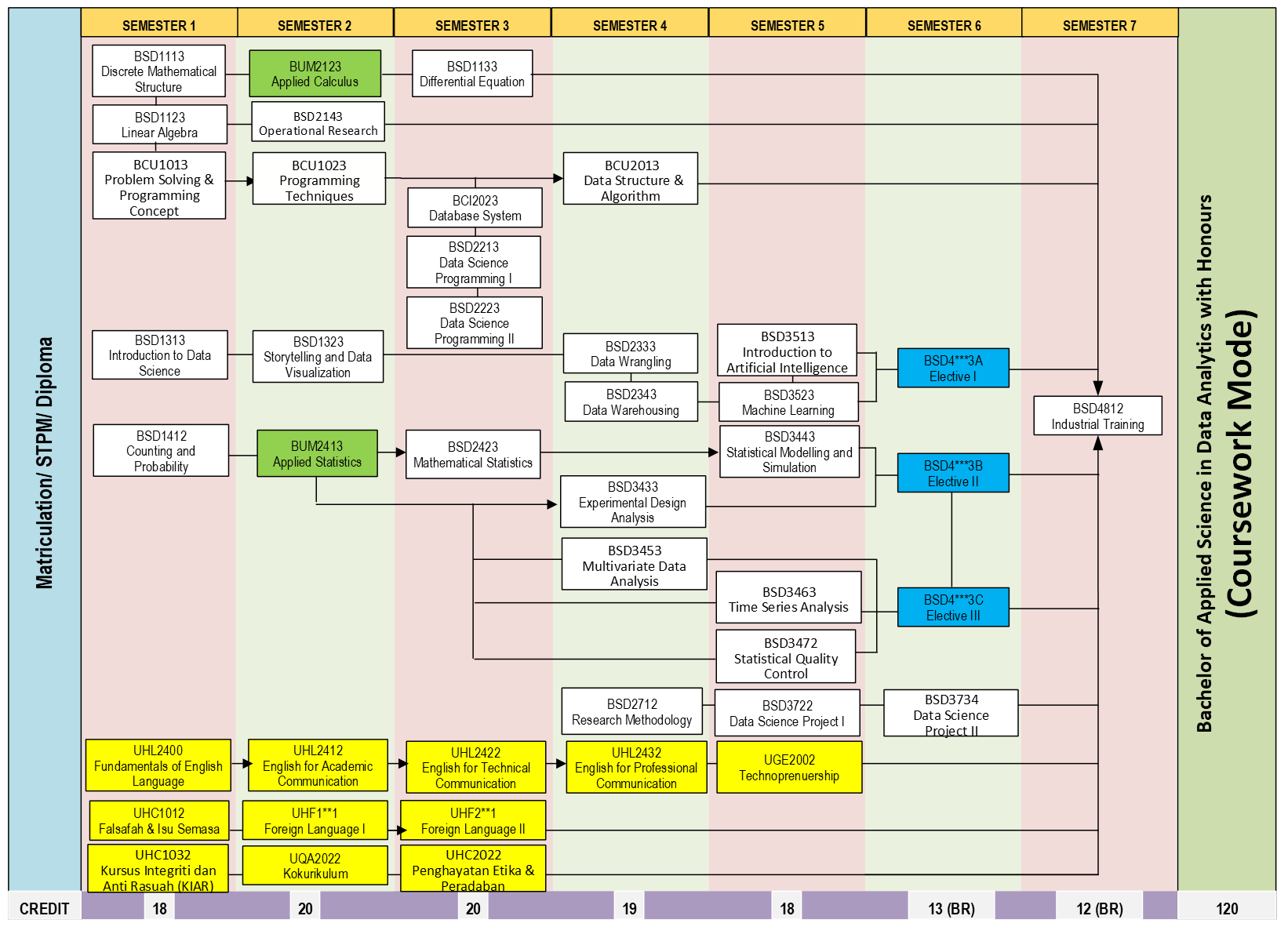
List of Courses by skills
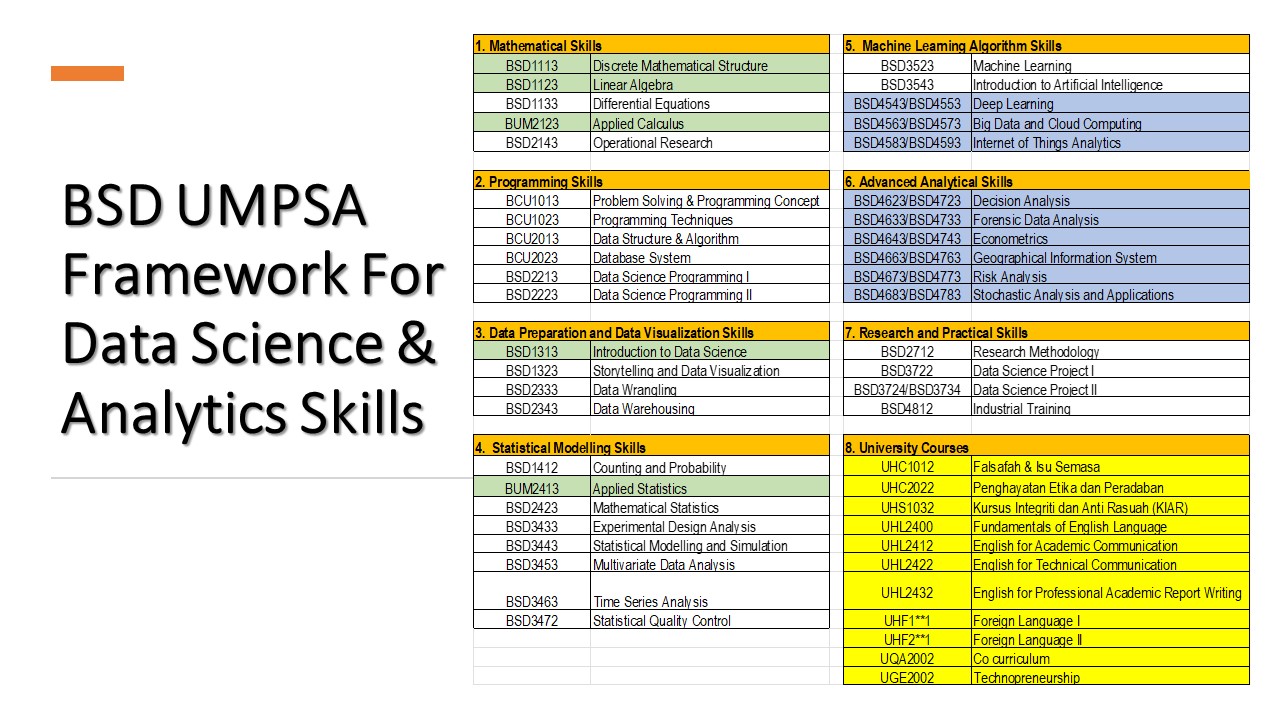
Official Brochure
